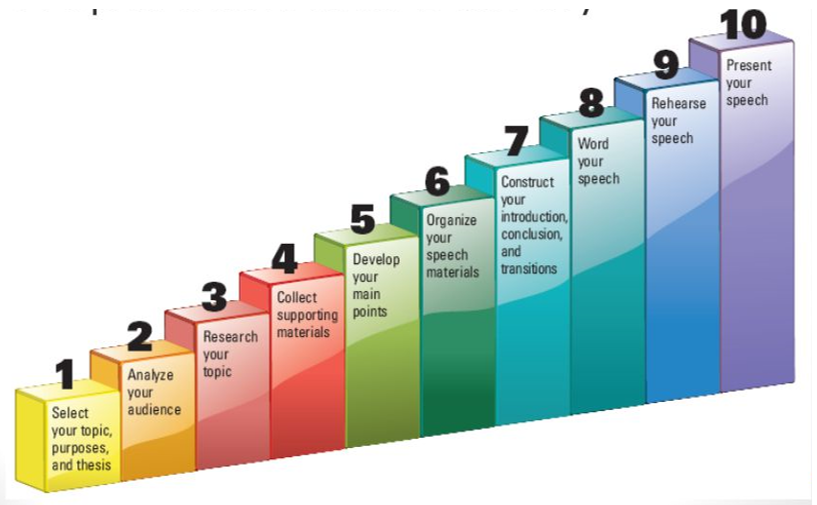Enhancing Students’ Speaking Skills through English Area Program at Islamic Boarding Schools
DOI:
https://doi.org/10.51574/ijrer.v4i3.3191Keywords:
English Area Program, English Language Proficiency, Islamic Boarding School, Speaking SkillsAbstract
The need for English language proficiency is becoming increasingly important in global communication, and its significance is becoming increasingly evident in the world of education. This study will examine students’ perspectives and the benefits of implementing the English Area Program in enhancing speaking skills among students in Islamic boarding schools. A qualitative descriptive approach was employed, using observation, questionnaires, and documentation as data collection methods. The participants were students actively involved in the English Area Program at the Wali Songo Al-Adnani boarding school. We employed data analysis techniques such as data reduction, data presentation, data condensation, and conclusion drawing. The findings reveal that the majority of students held a positive perspective of the program, as it created a supportive English-speaking environment that encouraged them to actively use the language. The program effectively improved students’ confidence, fluency, vocabulary mastery, and pronunciation. Moreover, the collaborative and interactive learning atmosphere significantly contributed to the development of their speaking competence. In conclusion, the English Area Program is an effective strategy for English language learning in boarding school settings, as it provides consistent and authentic opportunities for language use. These findings are expected to serve as a reference for educational institutions in designing similar programs to support students’ speaking skill development.
References
Adem, H., & Berkessa, M. (2022). A case study of EFL teachers’ practice of teaching speaking skills vis-à-vis the principles of Communicative Language Teaching (CLT). Cogent Education, 9(1). https://doi.org/10.1080/2331186X.2022.2087458
Al-Jamili, O., Aziz, M., Mohammed, F., Almogahed, A., & Alawadhi, A. (2024). Evaluating the efficacy of computer games-based learning intervention in enhancing English speaking proficiency. Heliyon, 10(16), e36440. https://doi.org/10.1016/j.heliyon.2024.e36440
Baecher, L., Artigliere, M., Patterson, D. K., & Spatzer, A. (2012). Differentiated Instruction for English Language Learners as “Variations on a Theme”: Teachers Can Differentiate Instruction to Support English Language Learners. Middle School Journal, 43(3), 14–21. https://doi.org/10.1080/00940771.2012.11461807
Choi, L. J. (2024). English as an important but unfair resource: university students’ perception of English and English language education in South Korea. Teaching in Higher Education, 29(1), 144-158. https://doi.org/10.1080/13562517.2021.1965572
Creswell, J. W., & Creswell, J. D. (2017). Research design: Qualitative, quantitative, and mixed methods approaches. Sage publications.
Darmi, R., & Albion, P. (2017). Enhancing oral communication skills using mobile phones among undergraduate English language learners in Malaysia. In Mobile learning in higher education in the Asia-Pacific region: Harnessing trends and challenging orthodoxies (pp. 297-314). Singapore: Springer Singapore. https://doi.org/10.1007/978-981-10-4944-6_15
Desmiyanti. (2022). English Club to Improve Students’ Speaking Skills: A Case Study of an Indonesian Islamic Senior High School. JURNAL INOVASI EDUKASI, 5(2), 1–13. https://doi.org/10.35141/jie.v5i2.405
Diana, N., Yunita, W., & Harahap, A. (2021). Student’ Perception and Problems in Learning English Using Google Classroom During the Covid-19 Pandemic. Linguists : Journal Of Linguistics and Language Teaching, 7(1), 10. https://doi.org/10.29300/ling.v7i1.4274
Ferdiyanto, F., & Kholili, A. (2022). Developing Supplementary Speaking Material for Eighth Grade Students. Journal of English Language Teaching and Cultural Studies, 5(2), 138–149. https://doi.org/10.48181/jelts.v5i2.16993
Fidriani, A. J., Entika Fani Prastikawa, & Ab Prabowo Kusumo Adi. (2021). Video Vlog As Teaching Media In Improving The Students’ Speaking Ability In Procedure Text. Journal of English Education and Linguistics, 2(2), 37–49. https://doi.org/10.56874/jeel.v2i2.531
Haidar, S., & Fang, F. (2019). English language in education and globalization: A comparative analysis of the role of English in Pakistan and China. Asia Pacific Journal of Education, 39(2), 165-176. https://doi.org/10.1080/02188791.2019.1569892
Hamid, M. O. (2020). Globalisation, English for everyone and English teacher capacity: Language policy discourses and realities in Bangladesh. In Globalisation and Education (pp. 207-228). Routledge.
Hanzawa, K. (2024). Development of second language speech fluency in foreign language classrooms: A longitudinal study. Language Teaching Research, 28(3), 816-838. https://doi.org/10.1177/13621688211008693
Islam, R. (2023). Parents' perception And Involvement Toward English for Young Learners in Rustic Area. At-Ta'lim: Jurnal Pendidikan, 9(2), 136-149. https://doi.org/10.55210/attalim.v9i2.1113
Islam, R. (2024). Analysis of English Learning Activities for Medical Students. E-LINK JOURNAL, 11(2), 209–215. https://doi.org/10.30736/ej.v11i2.1128
Islam, R., & Birchok, D. (2024). The perspective of ESP teaching: A study of english subject for undergraduate nursing students at Hafshawaty University. Interling : International Journal of English Language Teaching, Literature and Linguistics, 2(1), 32–36. https://doi.org/10.55210/interling.v2i1.1781
Islam, R., & Musdalifah, M. (2022). Teaching Speaking Skill of English as Foreign Language in Secondary School Level. Journey: Journal of English Language and Pedagogy, 5(2). https://doi.org/10.33503/journey.v5i2.2083
Jagarlamudi, G. K., Yazdinejad, A., Parizi, R. M., & Pouriyeh, S. (2024). Exploring privacy measurement in federated learning. The Journal of Supercomputing, 80(8), 10511-10551. https://doi.org/10.1007/s11227-023-05846-4
Juhaeni, A., Sanusi, A., Wasliman, I., & Hanafiah, H. (2021). Strategic management of quality improvement of madrasah aliyah graduates in modern islamic boarding schools. Tarbawi: Jurnal Keilmuan Manajemen Pendidikan, 7(01), 33-46. https://doi.org/10.32678/tarbawi.v7i01.4179
Kim, H., Sefcik, J. S., & Bradway, C. (2017). Characteristics of qualitative descriptive studies: A systematic review. Research in nursing & health, 40(1), 23-42. https://doi.org/10.1002/nur.21768
Lim, H., & Griffith, W. I. (2016). Developing intercultural communicative competence in foreign language learning. Sociology and Anthropology, 4(11), 1030-1035.
Lu, L., Jin, Y., Liao, R., Chuang, Y.-C., & Tung, T.-H. (2023). English training requirements and associated factors for non-native English-speaking nurses: A critical gap analysis based on the importance-performance method. Heliyon, 9(6), e16481. https://doi.org/10.1016/j.heliyon.2023.e16481
Masuram, J., & Sripada, P. N. (2020). Developing speaking skills through task-based materials. Procedia Computer Science, 172, 60-65. https://doi.org/10.1016/j.procs.2020.05.009
Maulana, C., & Suparmadi, S. (2024). Using Project-Based Learning To Improve Speaking Skills. Journal of Science and Social Research, 7(3), 833-842. https://doi.org/10.54314/jssr.v7i3.2070
Mercer, S. (2018). Psychology for language learning: Spare a thought for the teacher. Language Teaching, 51(4), 504-525. https://doi.org/10.1017/S0261444817000258
NH, U. H. K., Utami, L. D., Milawaty, M., & Dzulkifli, M. (2023). English for Effective Communication Untuk Meningkatkan Kemampuan Public Speaking Siswa SMK Nuris Jember: English for Effective Communication to Improve the Students’ Public Speaking Skills in Vocational School (SMK) Nuris Jember. NaCosVi: Polije Proceedings Series, 441-450. https://proceedings.polije.ac.id/index.php/ppm/article/view/646
Newman, S. (2018). Vygotsky, Wittgenstein, and sociocultural theory. Journal for the Theory of Social Behaviour, 48(3), 350-368. https://doi.org/10.1111/jtsb.12174
Nugroho, S. E. W. A., Rahmawati, L. E., & Huda, M. (2023). Implementation of Learning Speaking Skills Based on News Anchors in Vocational High Schools. Dalam M. H. Hikmat, Y. Sidiq, N. Ishartono, Y. Sulistyono, Patmisari, & Susiati (Ed.), Proceedings of the International Conference on Learning and Advanced Education (ICOLAE 2022) (Vol. 757, hlm. 2009–2023). Atlantis Press SARL. https://doi.org/10.2991/978-2-38476-086-2_161
Pham, H. C. (2021). Enhancing the employability of students undertaking English language and Linguistics programs in Vietnam. VNU Journal of Science: Education Research, 38(1). https://doi.org/10.25073/2588-1159/vnuer.4588
Phan, A. N. Q. (2021). Under the impacts of globalisation: the rising power of English as a foreign language (EFL) and the corresponding response of EFL policy in Vietnam. SN Social Sciences, 1(1), 31. https://doi.org/10.1007/s43545-020-00047-9
Portugal, J. C. A. (2021). Intercultural communicative competence in foreign language learning. Global Journal of Foreign Language Teaching, 11(4), 243-256.
Rahadian, D. A., Omolu, F. A., & Wulandari, S. (2022). The Techniques of Overcoming Anxiety During Speaking. Journal of Foreign Language and Educational Research, 5(2), 12-21. https://doi.org/10.31934/jofler.v5i2.2650
Rahmawati, Y., & Mege, S. R. (2023). Enhancing English Language Proficiency in HRM: A Strategic Imperative for Logistics Efficiency. Asian Journal of Logistics Management, 2(2), 112–122. https://doi.org/10.14710/ajlm.2023.20519
Rao, P. S. (2019). The importance of speaking skills in English classrooms. Alford Council of International English & Literature Journal (ACIELJ), 2(2), 6-18.
Setiawan, A. D. (2020). Learning and test-taking strategies performed by university students in Doing Test of English Proficiency (TEP): A Case Study. RETAIN: Journal of Research in English Language Teaching, 8(4). https://ejournal.unesa.ac.id/index.php/retain/article/view/33505
Suban, T. S. (2021). Teaching speaking: activities to promote speaking skills in EFL classrooms. Lectio: Journal of Language and Language Teaching, 1(1), 41-50. https://journal.unwira.ac.id/index.php/LECTIO/article/view/888
Sudarmo, S. (2021). The importance of speaking in English as a foreign language between skillful and thoughtful competencies: studying sociolinguistics perspectives. Linguistics and Culture Review, 113-124. https://doi.org/10.21744/lingcure.v5nS1.1321
Supriyadi, A., Mahmudi, M., Baiturrahman, B., & Jakfar Rohman, M. A. (2023). The Application Of Student Worksheets As Teaching Materials Learning In Islamic Religious Education To Be More Effective. Edupedia : Jurnal Studi Pendidikan Dan Pedagogi Islam, 8(1), 19–28. https://doi.org/10.35316/edupedia.v8i1.2913
Zeng, J., Ponce, A. R., & Li, Y. (2023). English linguistic neo-imperialism in the era of globalization: A conceptual viewpoint. Frontiers in psychology, 14, 1149471. https://doi.org/10.3389/fpsyg.2023.1149471

Downloads
Published
How to Cite
Issue
Section
License
Copyright (c) 2025 Luluk Irawati, Feri Ferdiyanto, Raudhatul Islam

This work is licensed under a Creative Commons Attribution-ShareAlike 4.0 International License.









1.png)













